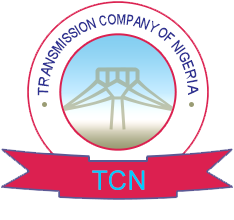To put the records right, the Market Operator of the Transmission Company of Nigeria (TCN) would want to chronologically, but in brief, enlighten the stakeholders in the Nigerian Electricity Industry (NESI) who are being fed with chaff by NESI defaulters, who are in desperate attempt but smart-less move to clear themselves of guilt on the social media.
The Nigeria Electricity Supply Industry is governed by Market Rules which are absolutely necessary for the smooth operation, viability and sustainability of the sector. These rules are voluntarily signed by all Market Participants – Generators, Transmission, Distribution and Eligible Customers – after being licensed by the Nigerian Electricity Regulatory Commission (NERC). The Administrator of the Market Rules is the Market Operator (MO) - Engr Dr. Edmund Eje under the administrative oversight of the TCN.
Without boring you with the larger roles of the MO in the Market, it would interest you to know that the MO is the custodian of all Contracts operating in NESI and all energy traded in NESI is bulk-metered, audited and accounted for by MO and monthly invoices given to all Participants including NBET. For revenue collection, the MO is only in-charge of collecting Service Charges for TCN (TSP-SO-MO-Ancillary Charges), NERC and NBET.
TCN operates on self-sustenance basis, it depends mainly on its Internally Generated Revenue (IGR) even for its overheads and most of its major projects. The Revenue of TCN is not crafted on cost-reflective tariff basis like the other participants in NESI, reason being that the Federal Government uses TCN to subsidize the NESI operations. The non-cost-reflective tariff which the Regulator allowed TCN to recover is not being paid in full by the Market Participants, leading to funding deficit for the TCN, supposedly, the fulcrum of the NESI. If TCN fails as a result of paucity of fund, no Market Participant would be functional and the NESI would crumble.
The Transitional Electricity Market commenced in February, 2015 with, among other preconditions for the Participants, posting of adequate Bank Guarantees and paying their monthly invoices 100%. By December 2016, the MO was on 15% collection and catering for overheads became a herculean task. By December, 2019, the outstanding on MO’s services invoice stood at N443b with interest. This figure may have been traded for DisCos credit on Tariff-Gap, reason, the Service Providers belong to the Federal Government. From January 2020 to date, the MO invoice outstanding stands at N80b. It is becoming very difficult for TCN and other service providers to function properly because of poor revenue receipt.
Given the above, the MO commenced revenue-drive since last year but the defaulters have been adamant to the various advances and notices for them to cure their defaults. Revenue drive procedure in NESI is well streamlined and no arbitrary process is adapted. The process is very well known to the participants except those who pretend to be ignorant of the Market Participation Agreement they voluntarily signed before entering the Market. The major default here is failure to put up a valid Bank Guarantee (BG) and also failing to clear their outstanding debts with MO.
- On 16th of February, 2022, all defaulters, including APL Electric ( 23rd Nov. 2022) were notified to put up their BG or validate as the case may be; - On 2nd March, 2022, all defaulters, including APL Electric (7th Dec.2022) were served with “Notice of Event of Default”. - On 9th of May 2022, all defaulters, including APL Electric (14th of May,2022) were served with “Notice of Intent to issue Suspension Order” - Between May and October, 2022, (8 defaulters applied for “Hearing” in line with the Market Rules, reconciling their accounts and offering various reasons for their inability to pay and asking for time. In all these, APL Electric never responded/replied our letters, not even phone calls to offer reasons for their inability to pay their accumulating debt (N896M in only six months of operation).
Finally, on the 21st of March, 2023, the Market Operator went to Press (on 3No Daily Newspapers) to notify all defaulters to fix their default within 14 business days or face Suspension from the Market. Suspension goes with complete disconnection or partial disconnection of the defaulter from the grid. It is the prerogative of the MO to carry out this sanction in batches to give room for the defaulters to approach MO for remedy in line with the Market Rules. Many other defaulters have been scheduled for similar sanctions should they fail to fix their default. The MO did not demand anything outside the Market Agreement they voluntarily signed. Note that Distribution companies also embark on load disconnection during their revenue drive. Investors should not embark on using trust fund they reck in on behalf of the Market to settle their bank loans and render other operators in the value-chain ineffective due to poor remittance.
NESI Market indiscipline is one of the major factors dealing a disastrous blow to the growth and sustainability of the Market. Some of the Participants believe it is business as usual where flouting the rules is the norm. They believe they can always intimidate by going to the “high places” and using derogatory languages mixed with cheap political sentiments as capital for sympathy. It is only natural that some defaulters will resort to using political blackmail to portray our genuine action in bad light. It is important to know that until the Market Rules are derogated, the MO will continue to apply it for the stability of the Market. Stakeholders should be sensitive to the real issue, which is efficiency and survival of the NESI.
For clarity, below is a summary of the suspension procedures in the market: 1. Notification of Non-Compliance: When a participant violates the Market Rules or fails to pay the Market Operator invoices. The Market Operator will first notify the Participant in writing, specifying the violation and requesting that corrective action be taken within a specified period. 2. Notice of Intention to Suspend: If the Participant fails to comply with the above notice, the Market Operator may issue a Suspension Order to suspend a participant. This notice will specify the reasons for the suspension, the proposed duration of the suspension (30 days), the attendant consequences ( Load Disconnection) and the conditions for lifting the suspension. 3. Opportunity to Respond: The Participant will be allowed to respond to the intention to suspend (Hearing) and provide reasons why the suspension should not be imposed. 4. Notice of Suspension: If the participant still fails to comply with the "Notice of Intention to Suspend', the Market Operator may issue a ' Suspension Order', which will last for 30 business days after which the MO can escalate the suspension to the Commission for the Business Continuity Regulation to click in. Within this Suspension period of 30days, the MO may completely or partially disconnect the defaulters from its point of connection to the grid. 5. Application for Reinstatement: After the suspension period, the participant may apply for reinstatement by providing evidence of compliance with the Market Rules and any other conditions specified in the 'Notice of Suspension'. The Market Operator will review the application and make a determination on whether to lift the suspension or not.
Note: Voltage and Current do not understand politics, at best, it is an insulation to the normal flow of electric power. We advise that defaulters should follow due diligence to fix their default as against resorting to politically campaigning for support and sympathy for distabilizing the NESI. The Federal Government had done so well in various NESI interventions which runs in trillion naira, the participants should not push the Government to the wall.
 TRANSMISSION COMPANY OF NIGERIA
TRANSMISSION COMPANY OF NIGERIA